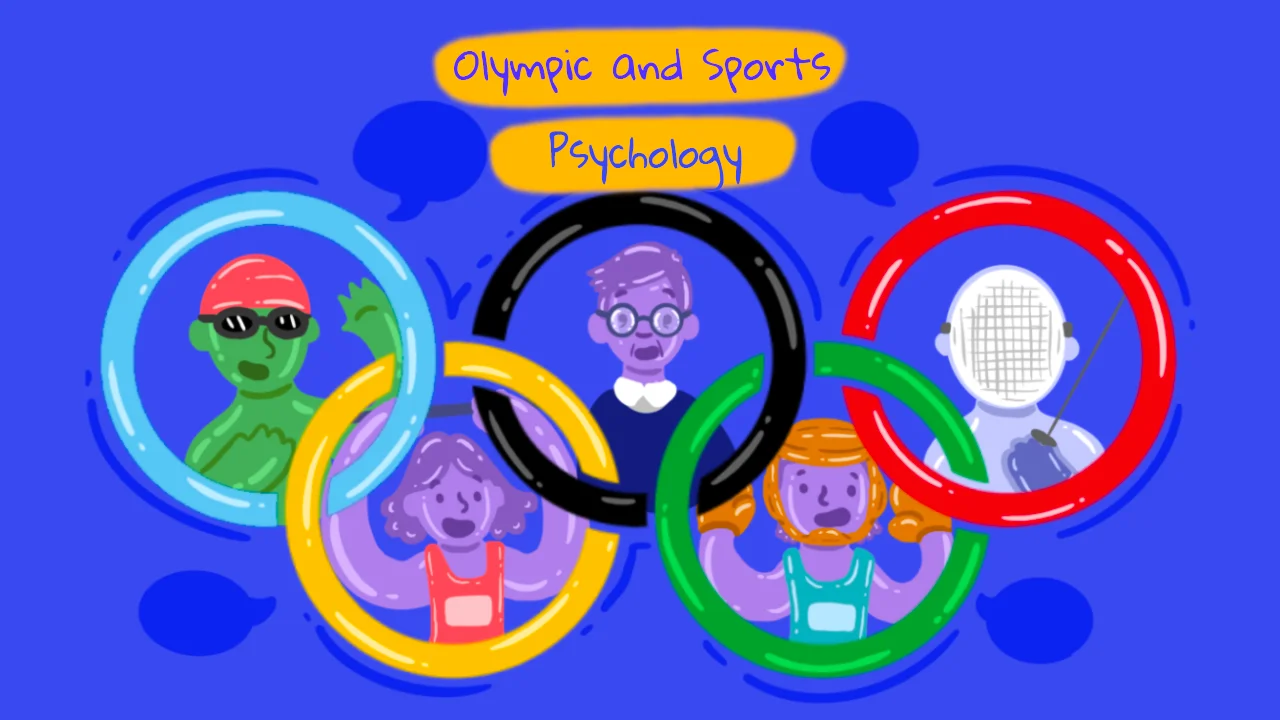
Start feeling better today!
Connect with your therapist today and take control of your life like our 850.000 happy clients.
Get StartedWhat is Sports Psychology?
Sports psychology is the educational, scientific, and professional assistance in the development, permanence, and progression of behaviors related to sports12.
To achieve the desired performance, athletes must plan and implement their psychological preparation alongside their physical and tactical training. A lack of psychological preparation can prevent an athlete from reaching their peak performance1,5.
In other words, sports psychology examines competitive and successful behaviors and the thoughts and emotions such as anxiety, self-esteem, and motivation that these behaviors bring. Sports psychology is the application of psychological principles, skills, and development to all levels of sports and physical activity. Therefore, the methods of psychology are also seen in sports psychology2.
Since its development, sports psychology has been viewed in two ways. The first is the application of psychological principles to sports and physical activity, and the second is exercise physiology, a sub-discipline of sports science that requires knowledge about the theories, structures, and measurements of other sub-disciplines of sports science such as biomechanics6.
Those who adopt the first discipline prefer the sports and physical activity environment to understand psychological theories and apply psychological principles, while those who adopt the second discipline focus on observing, explaining, and predicting behaviors in the context of sports.
What is Sport Competition Psychology?
It is known that the Olympics are not like other games and are very stressful and require serious effort. The Olympics are a challenging process built on competition and require attention to detail. Athletes, who must show their best performance of their lives, are aware that they will enter a competition that requires careful planning and preparation in every area alongside long-term technical and physical preparations11,13.
The process starts long before the Olympic Games and continues until the end. During this process, it is known that coaches and athletes can experience significant tensions and conflicts. Proper teamwork and solidarity are necessary in such an important and long process. Sports psychologists, who help athletes exhibit their performance, are also part of this teamwork11.

Competition psychology is a very challenging process. In 1989, Nideffer listed serious issues he encountered with Olympic athletes, indicating that during long-term camp periods, athletes experienced more hostility, distrust, hallucinations, fear of killing someone, suicidal tendencies, negative thinking, frequent apologies, or thoughts of being insane compared to their past10.
These feelings can lead to more negative thinking and self-doubt in athletes. Therefore, it is necessary to resolve all these complex emotions and situations with the help of sports psychologists. Today, the Olympic Games cause athletes to feel under pressure, reduce their extroversion, limit their social activities, and increase their analytical thinking and the number of mistakes they make as a result7.
Of course, sports psychologists do not only work with athletes. Non-athletes who want to adopt sports as a habit in their lives, gain motivation, and enjoy daily exercises can also seek help from sports psychologists.
Addressing all these issues, developing coping strategies, dealing with stress, and helping athletes feel ready for their performance all require the assistance of sports psychologists.
Areas of Work for Sports Psychologists
Although clinical psychologists often come to mind when thinking of psychologists in our country, there are many types of psychologists such as developmental psychologists, forensic psychologists, and child psychologists. There are also multiple types of psychologists in sports psychology. These types are educational sports psychology, clinical sports psychology, and exercise sports psychology, each with different purposes and assistance for athletes.
Educational Sports Psychology
Educational sports psychologists teach athletes to enhance their performance using psychological methods. They help athletes perform better on the field or in competitions by teaching methods such as goal setting, visualization, and self-talk4.
Clinical Sports Psychology
Clinical sports psychologists work with athletes who have disorders such as anxiety and depression. This field encompasses both sports psychology and clinical psychology. The aim is to simultaneously improve athletes' psychological well-being and sports performance4.
Exercise Psychology
Exercise psychologists work on developing daily exercise habits in non-athletes. This process involves using techniques like goal setting, mindfulness exercises, and motivational techniques, similar to those used by sports psychologists4.
Applications of Sports Psychology
Sports psychology is a highly diverse field with multiple topics of interest. These topics include focus, mental toughness, goal setting and visualization, motivation and team building, anxiety, and rehabilitation. All these areas are utilized within sports psychology.
1. Focus
The ability to manage distractions such as cheering fans, crowds, and other athletes' noises and focus on the task at hand is crucial for an athlete. Especially in the Olympics and competitions, it is almost impossible for athletes to have a quiet and focused environment. Therefore, athletes need to develop their ability to focus in noisy and crowded environments.
Other athletes' performances, the behavior of competitors, and other demotivating factors can also change athletes' focus and distract them.
Working on focus aims to help athletes stay focused on the race even amidst other distractions. Commonly used strategies to improve focus include deep breathing, paying attention to bodily signals and sensations, and mindfulness. All these help athletes maintain their main focus4.
2. Mental Toughness
Mental toughness is becoming an increasing area of interest in sports psychology. The term mental toughness can be expressed as the psychological characteristics essential for an athlete to reach their optimal performance8.
These psychological characteristics, especially for Olympic athletes, include unwavering self-belief, resilience against setbacks, and an endless desire for success. Responding positively to events, staying calm under pressure, controlling reactions to what is happening around them, staying motivated, and maintaining control are also characteristics of mental toughness4.
3. Visualization and Goal Setting
Setting goals and then visualizing the steps to achieve these goals helps athletes mentally prepare for training, competitions, or the Olympics. The process of visualization means creating a mental image of what they want to happen.
Athletes use this skill to imagine the desired outcome. Imagining the outcome and visualizing the steps in their mind helps athletes focus on their goal and achieve it4.
When an athlete visualizes the paths to their goal, the goal becomes more realistic, and they start to recall the feelings they will experience when they achieve it. Visualizing these paths and the goal is also crucial for navigating them correctly and making the right choices.
4. Team Building and Motivation
Some sports psychologists work with professional athletes, sports teams, and coaches to improve performance and motivation. In this process, psychologists deal with both intrinsic and extrinsic motivations.
Extrinsic motivations are external rewards such as money, medals, trophies, or recognition. Intrinsic motivations are internal desires such as the desire to win, the pride from developing a skill, and other internal rewards.
Team building is also an important topic in sports psychology. Sports psychologists work with athletes, sports teams, and coaches to develop a sense of camaraderie and efficiency.
In teams where camaraderie is developed, athletes stop striving for individual success and start working for the team, which positively affects the team's success.
5. Anxiety
The issue of athletes coping with strong pressure from competitions is also within the scope of sports psychologists. Performance anxiety, which is common in many people, also occurs in athletes and can lead to poor performance. This process often involves working with a sports psychologist to find ways to reduce performance anxiety and examine it.
For Olympic athletes and competitors, pre-competition or performance anxiety and nervousness are quite common. While anxiety often positively affects performance, an anxiety level outside the norm can lead to poor performance. Therefore, learning tactics to stay calm can help improve athletes' performance4.
Techniques to reduce anxiety and calm the person require long processes and working with a therapist. These processes include trying to change negative thoughts, relaxation techniques, and building self-confidence. However, unfortunately, there is no miraculous way to reduce anxiety. Therefore, athletes need to keep their therapy processes continuous.
6. Rehabilitation
Helping athletes return to sports, training, and Olympic preparations after injuries is also one of the duties of sports psychologists. Physical injuries during sports can lead to emotional wounds in athletes, such as anger, hopelessness, fear, and weariness.
Injured athletes feel left behind as they will be away from training and performing. This feeling of being left behind also brings anxiety about failure and the fear of losing their pre-injury performance.
The duty of a sports psychologist is to help athletes cope with the emotional impacts of physical injuries, deal with the mental challenges of injuries, regain lost confidence, and ultimately facilitate their return to sports.
Effects of Sports Psychology
Research in this field shows that sports psychology techniques positively impact individuals' performance. These techniques are not only effective in sports but also in other areas.
For example, in a study conducted with doctors, the prevalence of negative reactions from doctors while treating patients with acute illnesses was examined. The study found that using techniques from sports psychology improved the doctors' responses. When doctors applied the same psychological routines and techniques as athletes, it was observed that negative reactions were better controlled, responses improved, and patient care also enhanced3.

In a 2013 study by Morelli and colleagues on children with obesity and sports psychology, it was proven that sports psychology has a significant effect on reducing obesity, especially in children9. Sports psychologists help children maintain a healthy weight by increasing physical activity and the enjoyment derived from it.
Sports psychologists play an important role in affecting the physical health, performance, mental toughness, and psychological well-being of athletes, similar to coaches, training sessions, and camps. This field, which is not too distant in history and is just beginning to gain recognition today, is increasingly known and applied in various areas to reduce stress, boost motivation, improve moods, and more. Particularly for athletes participating in the Olympics, this field is of vital importance and is developing day by day.
Kaynakça
- Brewer BW. Handbook of Sport Medicine and Science, Sport Psychology. 1st ed. UK: Willy- Blackwell; 2009. p.148.
- Browne, M.A., & Mahoney, M.J. (1984). Sport psychology. Annual Review of Psychology, 35(1), 605-625.
- Church H, Murdoch-Eaton D, Sandars J. Using insights from sports psychology to improve recently qualified doctors' self-efficacy while managing acutely unwell patients. Academic Med. 2020;96(5):695-700.
- Cherry, K. (2010, July 15). An Overview of Sports Psychology. Verywell Mind. https://www.verywellmind.com/what-is-sports-psychology-2794906
- Erdoğan, N., Kocaekşi, S.(2015). Elit Sporcuların Sahip Olması Gereken Psikolojik Özellikler, Turkiye Klinikleri J Sports Sci,7(2):57-64.
- FEPSAC. (1996). Position statement of the FEPSAC: 1. Definition of sport psychology. The Sport Psychologist, 10, 221-223.
- Koruç, Z. (1998). Türkiye’de spor psikolojisinin gelişimi. 5. Uluslararası Spor Bilimleri Kongresi. Ankara: Hacettepe Üniversitesi. 5-7 Kasım, 167.
- Liew G, Kuan G, Chin N, Hashim H. Mental toughness in sport. German J Exerc Sport Res. 2019;49:381-94.
- Morelli V, Davis C. The potential role of sports psychology in the obesity epidemic. Prim Care. 2013;40(2):507-23.
- Nideffer, R.M. (1989). Psychological services for the US track and field team. The Sport Psychologist, 3, 350-357.
- Oruç, Z., Bayar, P.( 2006). Olimpik Hazırlıklar ve Spor Psikolojisi, Spor Bilimleri Dergisi, 17(1),26-37.
- Rejeski WJ, Brawley LR. Defining the boundaries of sport psychology. Sport Psychologist 1988;2(3):231-42.
- Terry, P. (1997). Lessons to game: Sport psychology, Coaching Focus, 34, 9- 10.





